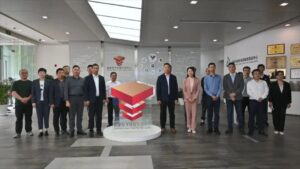On July 13, the 2018 Shanghai Technology Transfer Institute Competency Certification Series Training - International Certified Technology Licensing Professional (CLP) Training officially started. 27 participants from technology transfer agencies, university research institutes, intellectual property operators, science and technology enterprises, engaged in technology transfer, technology incubation, project management, science and technology investment, intellectual property, etc. attended this training.
With the development of Shanghai as a science and technology center with global influence, technology transfer has become an urgent need. As the development of domestic technology transfer is still immature and the related system is not perfect, the loss of many technological achievements in the past has become a pity. The establishment of Shanghai Technology Transfer Institute (STI) is aimed at cultivating high-level, international and professional talents in the field of technology transfer, and solving the realistic bottlenecks in every aspect of technology transfer by building a bridge for personnel exchange and resource convergence among universities, institutes, internationally renowned organizations and various enterprises, so as to build and form a core talent team to promote the transfer of scientific and technological achievements.
In this regard, the Shanghai Science and Technology Commission innovation service director Chen Hongkai said, the reform is not perfect, it is the time when we carry out primitive accumulation, breakthroughs, is the time for the development of the technology manager industry. The next 20 years is the golden age of technology managers, and Shanghai will become the hub of international technology transfer.
According to Zou Shujun, executive vice president of the National Technology Transfer Eastern Center, achieving the smooth transformation of scientific and technological achievements requires greater efforts to cultivate complex professionals in areas such as cutting-edge technology route research, technology demand analysis, intangible asset value assessment, technology marketing, technology mergers and acquisitions, and intellectual property operations. It is hoped that the Shanghai Technology Transfer Institute will take up the important task of cultivating technology compound talents.
It is reported that the international Certified Technology Licensing Professional (CLP) training activities are divided into four modules, which is now the first module of the training activities. The first module provides 15 courses on the relationship between technology and intellectual property, the objective rules of operation, the origin and international influence of CLP, business and intellectual property of innovative enterprises and development strategies.
In order to learn the mature experience of foreign technology transfer and transformation, the first course has been prepared since the establishment of the Shanghai Institute of Technology Transfer. Robert Held, Chairman of the Board of Directors, Kimberly Chotkowski, CEO of The LES US & Canada Licensing Executives, and our country's Intellectual property rights leader Zong Kong.
Based on his many years of domestic and international IPR service cases, Mr. Zong Gang talked about the objective law of technology transfer and IPR operation, and pointed out the misconceptions that exist in China. High-quality and high-value intellectual property rights are the key to successful technology transfer, but due to the lack of professional management of technology transfer and transformation in China at present, it leads to heavy losses in technology achievements. At the same time, Mr. Zong also borrowed "Don't let professors sit at the negotiation table" from Stanford University to express the importance of "the transformation of scientific and technological achievements mainly relies on professional teams, not researchers".
So how can innovative companies develop their business and IP strategies? How do you choose the right IP protection for a technology or product and build a portfolio of intangible assets of great commercial value? Robert Held and Kenberly Chokowski shared foreign experiences on this.
For the students who are about to enter the technology manager industry, Chen Hongkai summed up the five requirements in a humorous way: first, need to be a doctoral degree in science and engineering, at least involving technology; second, have more than three years of experience in technology transfer industry with the mentor; third, read MBA courses, know more law; fourth, high emotional intelligence, will sell; fifth, high face value.
It was revealed that later this year, Shanghai will introduce policies to encourage intermediaries and talents, using intermediary services as a vehicle to further build technology intermediaries. The Ministry of Science and Technology will also run a national 80-person training course, at which time the two classes may be merged to strengthen the exchange of technology transfer between Shanghai and the provinces and cities.
(Source: East China Technology Media)




